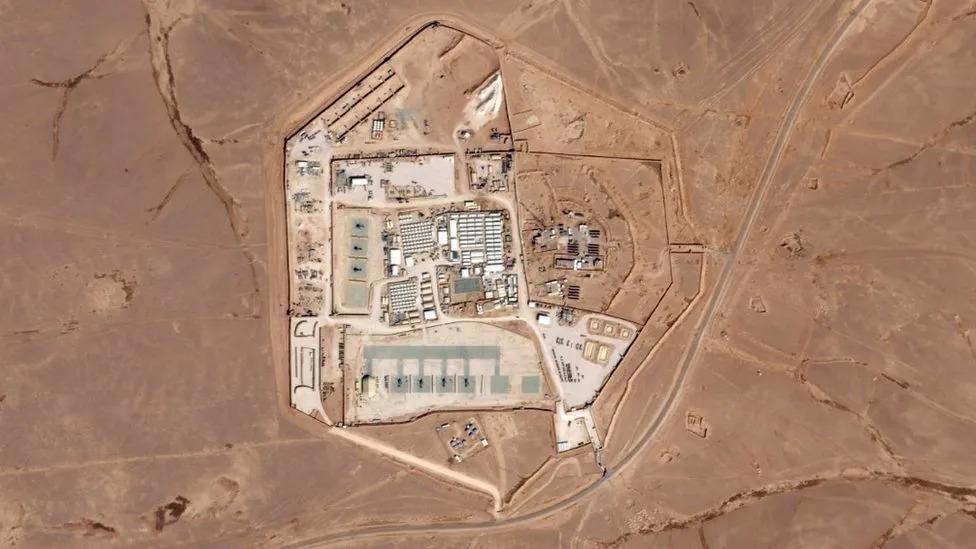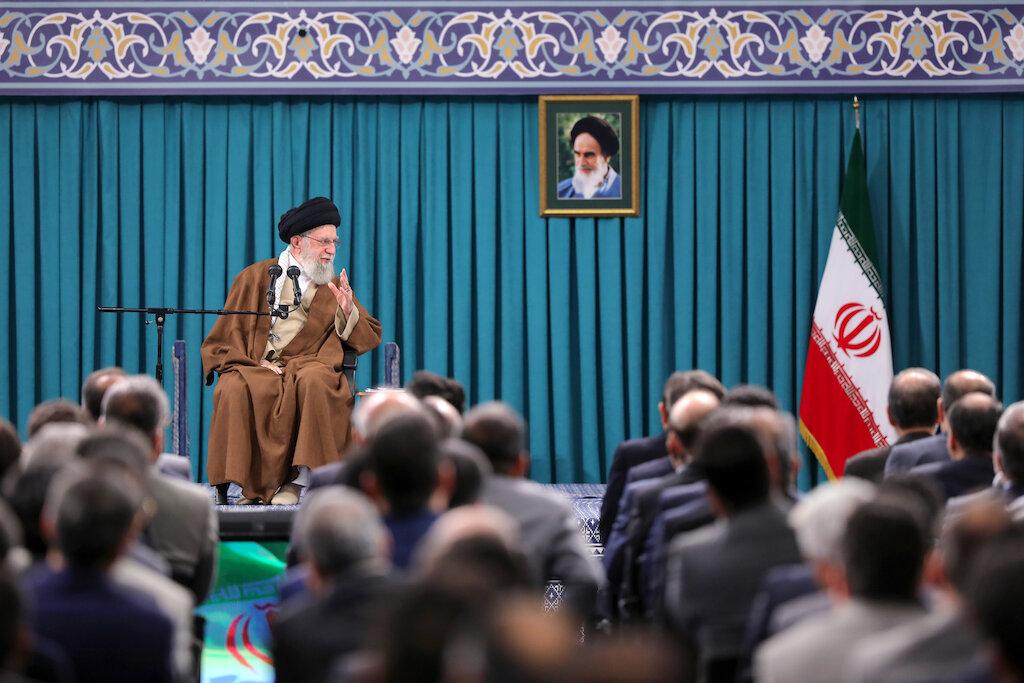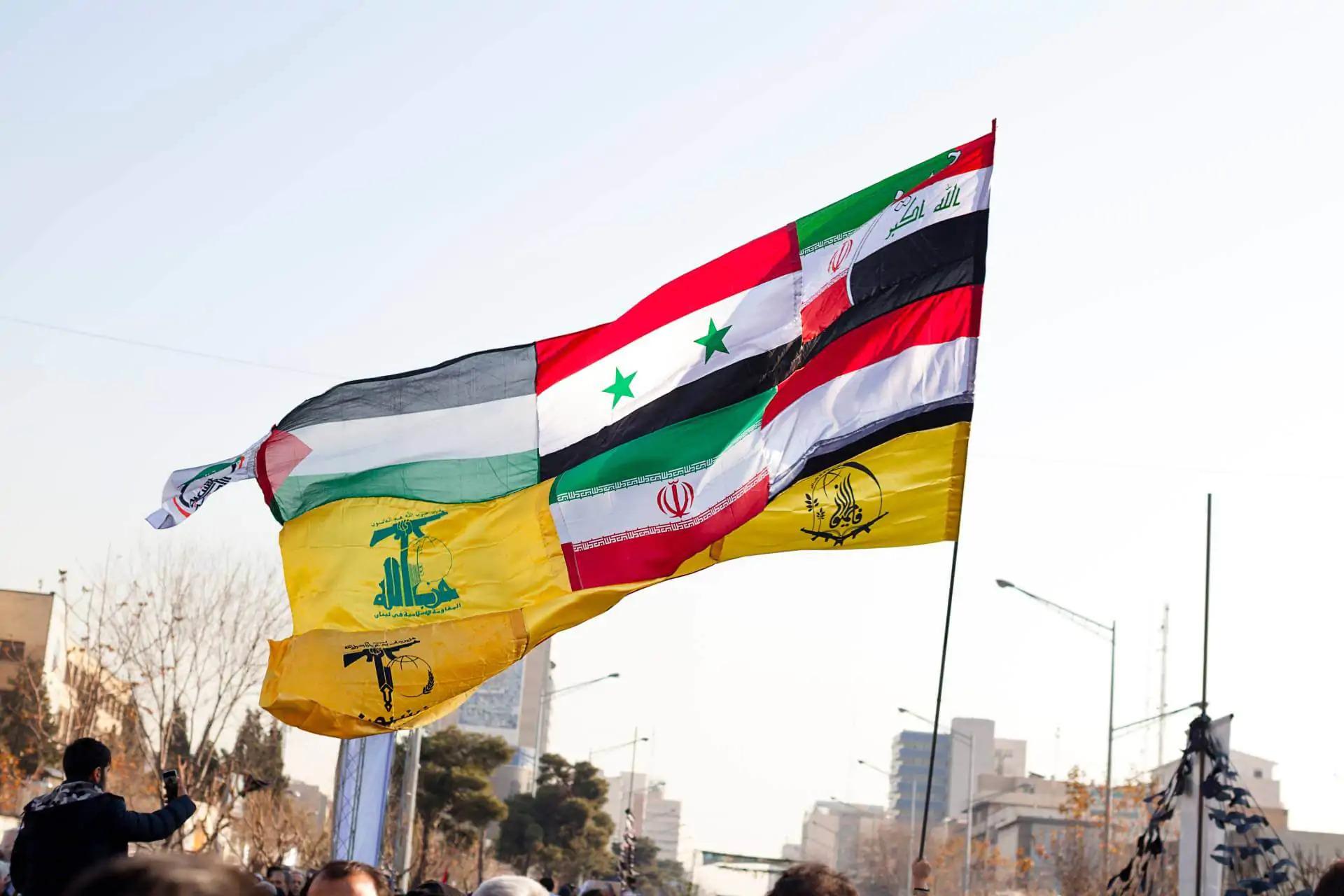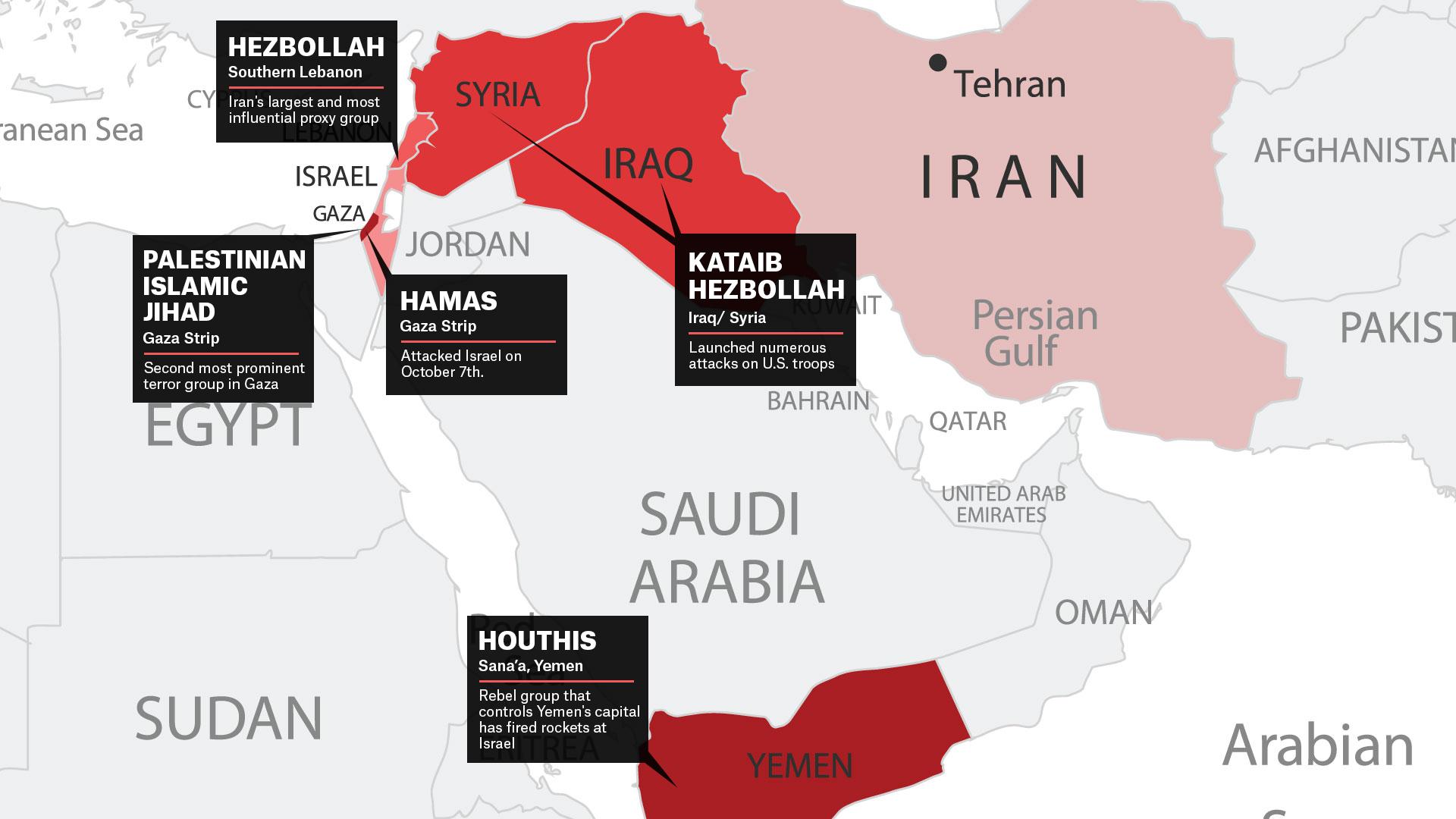Iran tries to avoid war with US Amid its proxies’ warmongering in Middle East
The Iranian supreme leader has reportedly ordered to avoid direct military conflict with the United States, after an Iran-aligned militia killed three American soldiers, amid the US president’s promised retaliatory response.
This order came after Iran’s Supreme National Security Council which is charged with preserving the Islamic Revolution, territorial integrity, and national sovereignty, held an emergency meeting this week, strongly worrying that the US would retaliate after Iraqi Shia militia Kataib Hezbollah (Hezbollah Brigades) killed three American soldiers and wounded more than 40 others in a drone strike in Jordan, on January 28.
The large drone struck a logistics support base near the Syrian border in Jordan known as Tower 22, which is used largely by troops involved in the advise-and-assist mission for Jordanian forces.

Shortly after the attack, US President Joe Biden blamed Iran-backed militias for the first US fatalities after months of strikes by such groups against American forces across the Middle East since the start of the Israel-Hamas war.
Later, in a statement on January 30, Kataib Hezbollah announced the suspension of its military operations against US forces in the region, as it didn’t want "to embarrass the Iraqi government".
Escaping direct confrontation
The Iranian security council, including the president, foreign minister, chiefs of the armed forces and two aides to the country’s supreme leader, debated how to respond to a range of possibilities, from a US attack on Iran, itself, to strikes against the proxy militias that Iran backs in the region, The New York Times cited three Iranians with knowledge of the council’s discussions.
Iran’s Supreme Leader Ayatollah Ali Khamenei reportedly said that he “opposes war with the US because preserving the Islamic regime’s hold on power is the highest priority”, and the war would divert the world’s attention from the humanitarian catastrophe in Gaza.

Moreover, the Iranian foreign ministry spokesman, Nasser, Kanani denied responsibility for the attack, saying that the resistance groups in the region "do not take commands" from Iran in their decisions and activities. Although, he criticised the US support for Israel, saying that Tehran had "repeatedly" warned about the expansion of the war into the region with the continuation of the war in Gaza.
The US-Iran confrontation has not touched Iranian territory so far, and Washington has signalled it does not intend to strike Iran directly.
Meanwhile, Iranian officials have stressed they want to avoid a regional war and do not want direct conflict with Israel or the US. “We hear some threats from the words of US officials; we tell them no threat will go unanswered,” Maj-Gen Hossein Salami, Commander-in-Chief of the Islamic Revolution Guard Corps (IRGC), said on January 31, stressing that "we are not after war, but will defend ourselves and our glory".
On the same day, Iranian Foreign Minister Hossein Amir-Abdollahian called on the US to "stop the language of threats and projection, and focus on a political solution", saying that Iran's response to any threat would be "immediate and decisive".
In another statement, Amir-Abdollahian called on the US to engage in diplomacy to resolve the crisis in the region, saying that "the White House knows very well that the solution to end the war and genocide in Gaza and the current crisis in the region is political".

Iran's UN envoy Amir Saeed Iravani also warned earlier that Tehran would "give a decisive response" to any attack on its territory, and its interests.
Rise of proxies
Since the onset of war in Gaza, Iranian-allied militias known as the “Axis of Resistance” have stepped up operations from multiple fronts in the Middle East against US and Israeli-linked entities. Hezbollah in Lebanon has launched rockets at Israel, Houthi rebels in Yemen fired missiles at ships in the Red Sea and Gulf of Aden, and other militant groups attacked US bases in Iraq, Syria and Jordan.
Iran has been accused of facilitating Houthi rebels' attacks on shipping in the Red Sea which led the UK and the US to launch joint and limited attacks on Houthi targets. Tehran insists that the Houthis act independently and take no orders from Iranians.
NATO Secretary General Jens Stoltenberg accused Tehran of destabilising the Middle East, during his joint news conference with US Secretary of State Antony Blinken on January 29, saying that Iran bore responsibility "for backing terrorists who attack our ships in the Red Sea".
On January 24, the US launched retaliatory strikes on sites in Iraq affiliated with the brigades, killing at least two militiamen, after blaming this group for some of the recent attacks targeting US bases in the region, including a January 20 drone strike on Ain al-Asad air base in western Iraq that injured troops.

Meanwhile, UK Defence Secretary Grant Shapps said on February 1 that the UK is not planning to join the expected strikes targeting Iranian personnel and proxy groups operating in Iraq and Syria over the coming days, cautioning against a “wider regional conflict”. However, he called on Iran to “show leadership over these Iranian-backed militias in Syria and Iraq”.
Iranian-backed militias have hit American military installations in Iraq over 60 times and in Syria more than 90 times, with drones, rockets, mortars and ballistic missiles, since the beginning of hostilities between Israel and Hamas in Gaza on October 7, 2023, but the January 28 attack was the first targeting American troops in Jordan and the first to result in the loss of American lives.
In return, US and British forces have struck Houthi bases, and Israeli strikes in Syria and Lebanon have killed senior Iranian and Hezbollah commanders, so Iranian commanders leaving bases in Iraq and Syria that could become US targets.
Because of possible US strikes on the Iranian bases in Syria's eastern province of Deir al-Zour, Iran-linked transnational militias, including the IRGC’s Fatemiyun and Zeynabiyun brigades, and Hezbollah fighters also evacuated their bases. This move reflects Tehran's desire to de-escalate an unfolding regional confrontation with the US resulting from the conflict in Gaza.








